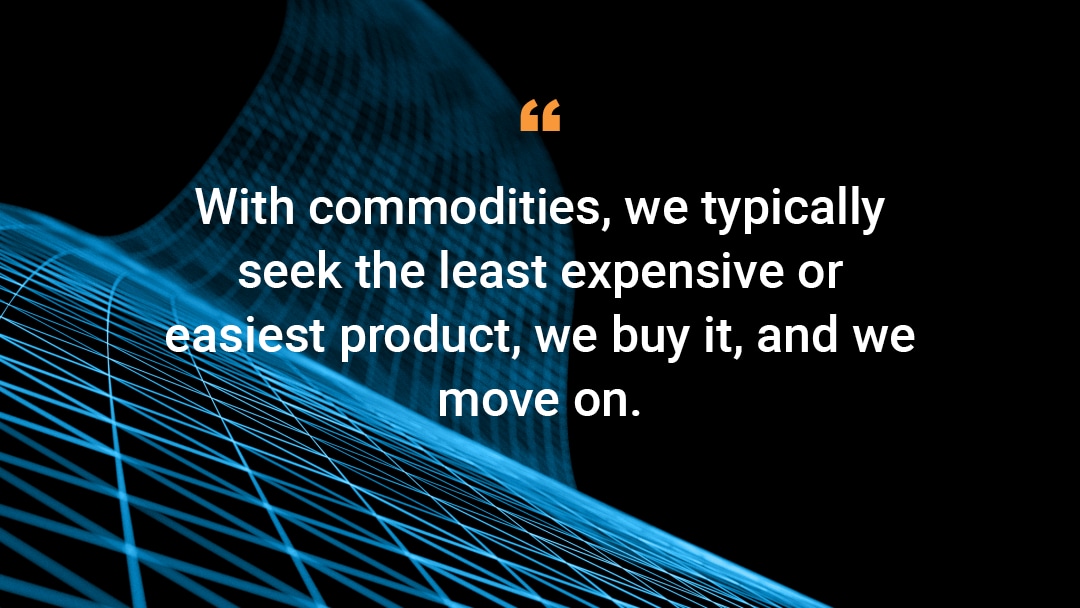Distinguishing Among DNS Services Part 1: The Platform

This is Part 1 of a three-part blog series highlighting some of the distinguishing aspects of Akamai's Domain Name System (DNS) services, Edge DNS and Global Traffic Management. To begin the series, we focus on Akamai's DNS platform, which was the subject of a technical paper presented at SIGCOMM 2020 this past August.
Our world is full of commodities. Everyday items like gasoline or bleach, or traded commodities such as gold or crude oil might come to mind, but there are many examples in technology as well. With commodities, we typically seek the least expensive or easiest product, we buy it, and we move on.
DNS is a technology that's been around for so long, it's arguably become commoditized, at least in some peoples' thinking. Maybe it's because it's so mature and highly standardized (which it needs to be, or the internet wouldn't function). Maybe it's because there are so many options to choose from. Or maybe it's because the DNS mostly just works. Until it doesn't.
It's only when DNS-related outages happen that people start to realize that DNS, while a commodity in a certain sense, is too valuable and important to simply take for granted. For that reason, customers are well advised to thoroughly evaluate the alternatives. The problem is that organizations don't always understand or appreciate the distinctions, or recognize the inherent risks of simply opting for the least expensive solution or the provider claiming to be fastest.
There are differences across DNS implementations. And there are differences among DNS providers. The distinctions are often subtle, but they're there, which is why it's sometimes important to magnify and focus on them, especially when at some point they might help someone avoid needing to explain to an unhappy CEO, after a sleepless night, why their company's website was essentially unavailable for some number of hours the previous day.
The problem is: How do you do that? How do you uncover the distinctions, or the advantages of one DNS solution or provider vs. another in unbiased fashion?
Customer reviews or testimonials are perhaps one way, but rarely unsolicited by vendors. Third-party websites and periodicals that appear objective are, in fact, sometimes vendor-sponsored. Market guides and vendor comparisons published by industry analysts are probably the most objective and useful, but analyst coverage of DNS has been scant at best over the past several years.
At the SIGCOMM 2020 virtual conference in August 2020, a team of Akamai engineers presented a paper called "Akamai DNS: Providing Authoritative Answers to the World's Queries" about the Akamai DNS platform.
You are unlikely to encounter a DNS provider that has written anything that goes into this level of detail on what it took, and what it takes, to engineer, maintain, and operate a DNS infrastructure such as Akamai's: one with the levels of resilience, scale, performance, and adaptability necessary to support not only our Edge DNS and Global Traffic Management services, but in fact, our entire global content delivery network (CDN).
Akamai's global platform, the Akamai Intelligent Edge, is, and has always been, the driving force behind our business -- our crown jewel, if you will. Many of the world's leading companies and institutions trust Akamai above all others to consistently deliver their web applications and content to end users. What's sometimes overlooked, however, is that at the foundation of our global platform is our DNS platform. As the paper states up front, Akamai's DNS is the starting point for a significant percentage of the world's internet interactions. That's a very powerful statement when you stop and think about it.
Of course, like most providers, Akamai has occasionally needed to manage through a DNS outage. But the technology, systems, infrastructure, and processes we have in place, which the paper describes, have largely prevented those from causing headlines. But this is not about pointing fingers. It's about demonstrating and providing value to our customers and instilling the confidence that selecting Akamai, especially for secondary DNS, is a safe and sound business decision.
As a product marketer, I spend a great deal of time producing content and tools designed to make us more successful at selling our products. The paper that was presented at SIGCOMM 2020 is not a marketing document, and it wasn't written as such. What it is, however, is solid evidence of how good Akamai is at DNS.
Akamai has experienced notable successes in its 22-year history. We deliver the world's largest live-streamed video events. We are a recognized leader in CDN, web application firewalls, and distributed denial-of-service (DDoS) mitigation. Even beyond technical achievements, Akamai is a leader in important areas such as environmental sustainability and diversity and social justice. All of those achievements do sometimes overshadow our proficiencies in DNS -- which don't, by the way, end with our authoritative services. Our innovations and investments in recursive DNS, as well as our related investments and focus on threat intelligence, have yielded a number of other Akamai products and solutions that bring value to our enterprise and carrier customers every day.
To that end, perhaps it's time to look more closely at our DNS technology and products, beginning with our DNS platform. Even beyond customer quotes, third-party websites, and analyst rankings, the SIGCOMM paper -- written by Akamai's Kyle Schomp, Eymen Kurdoglu, Mashooq Muhaimen, Ramesh Sitaraman, and Onkar Bhardwaj -- makes for a good starting point.
To learn more about Akamai's authoritative DNS products, you can visit their respective product pages:
If you're interested in a free trial of either product, here's where you can sign up:




